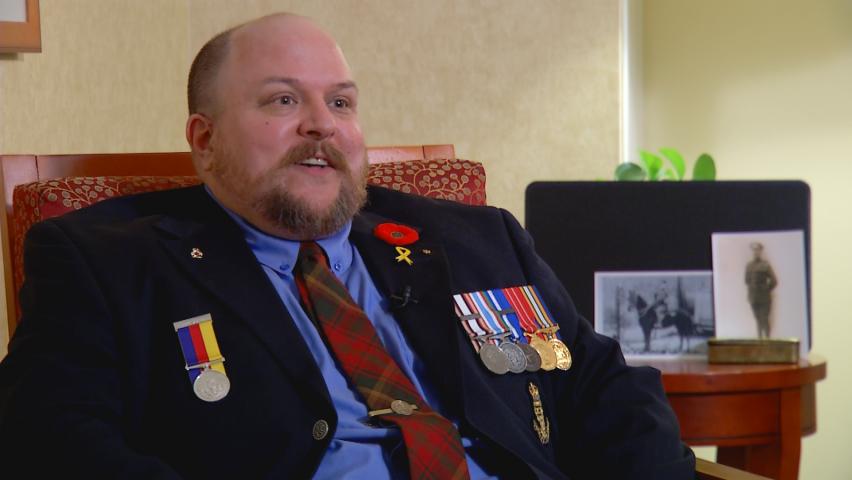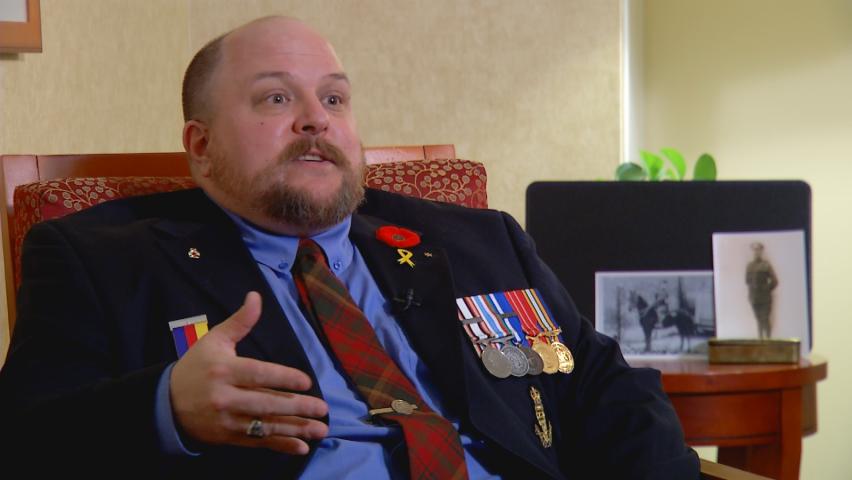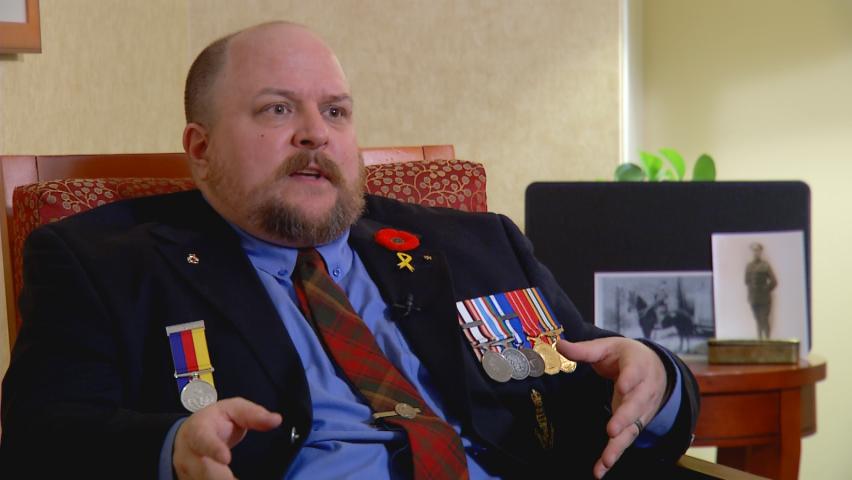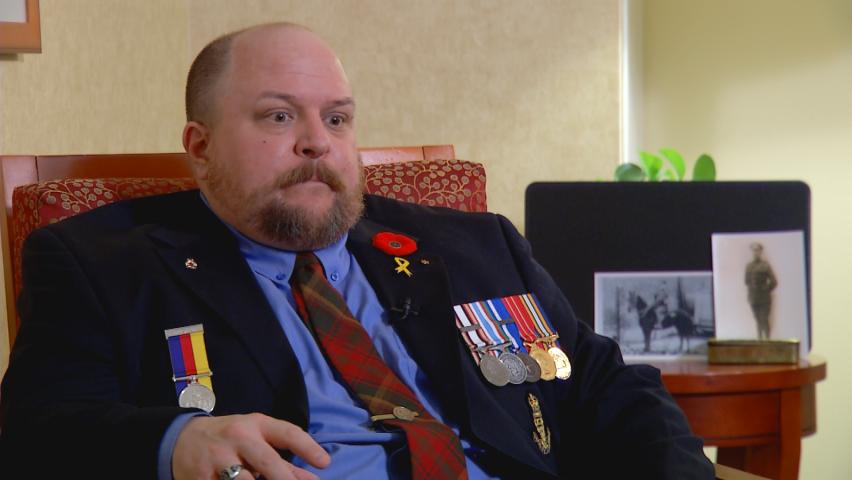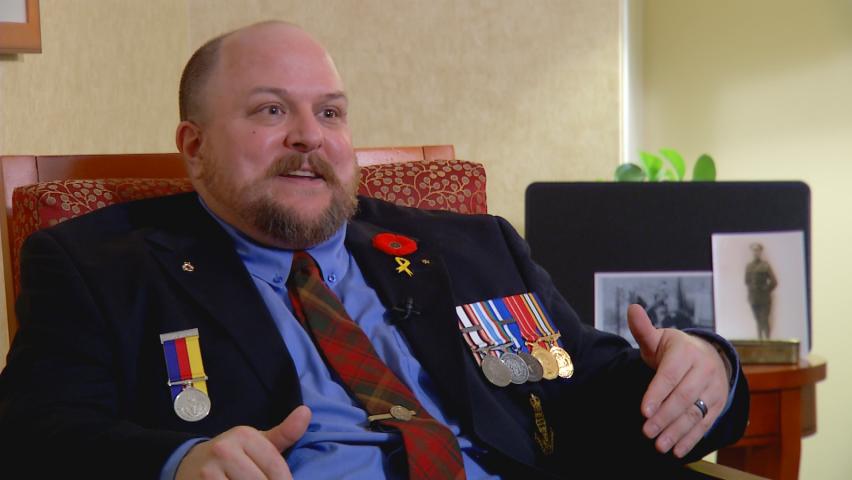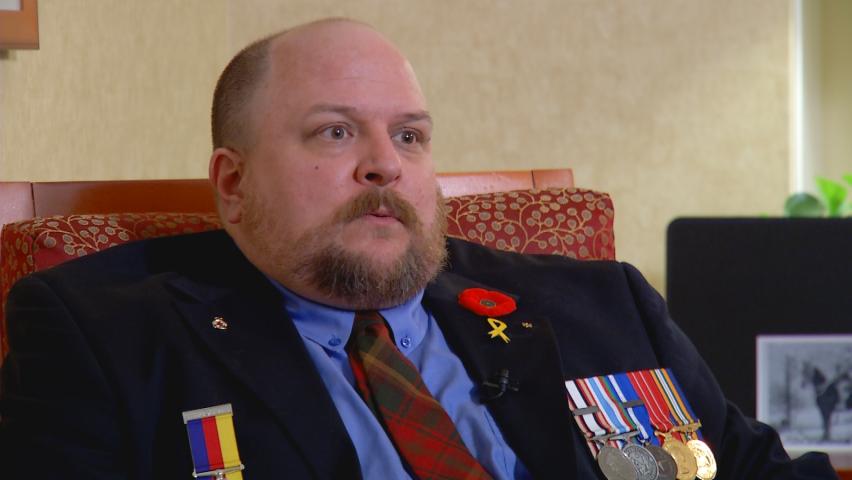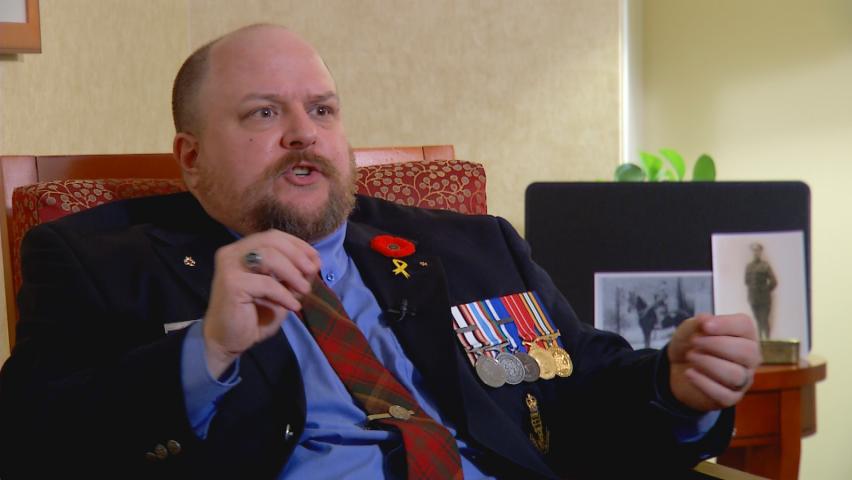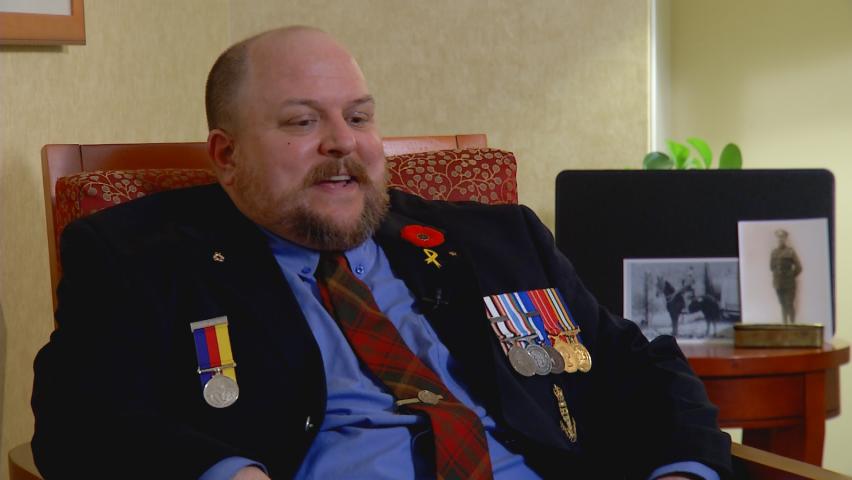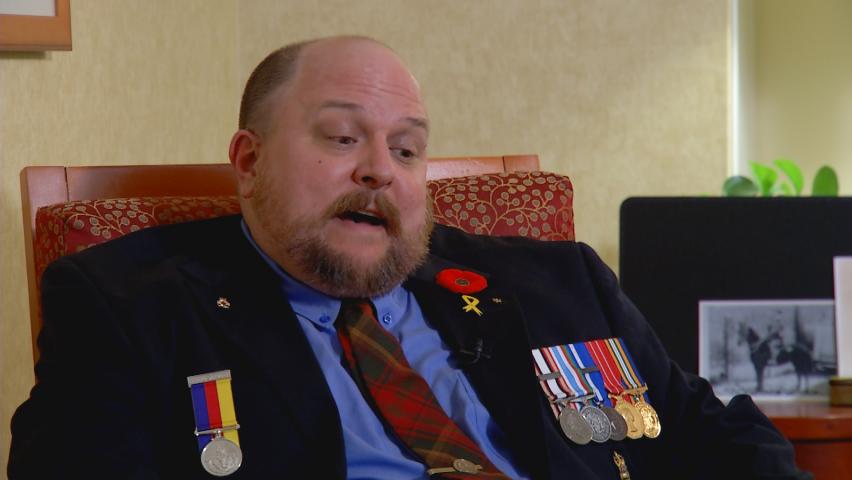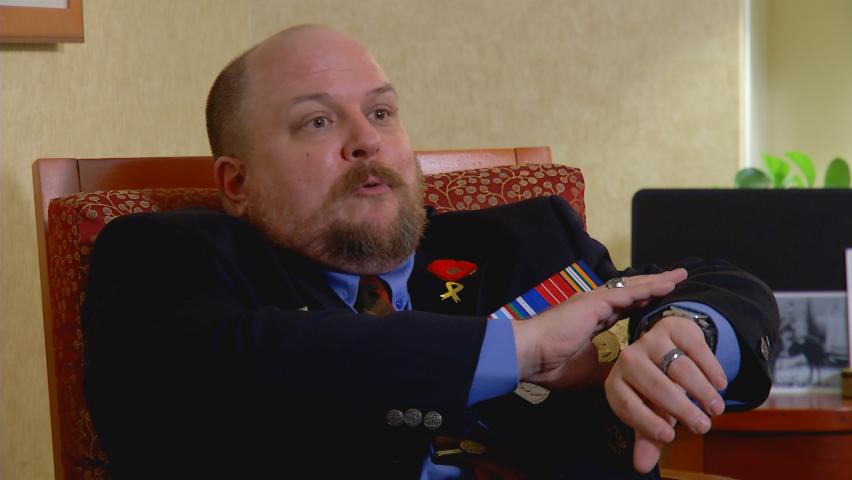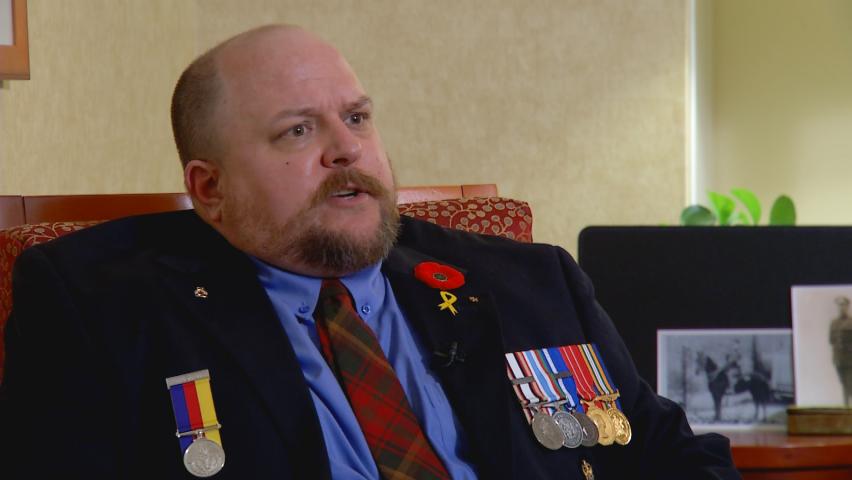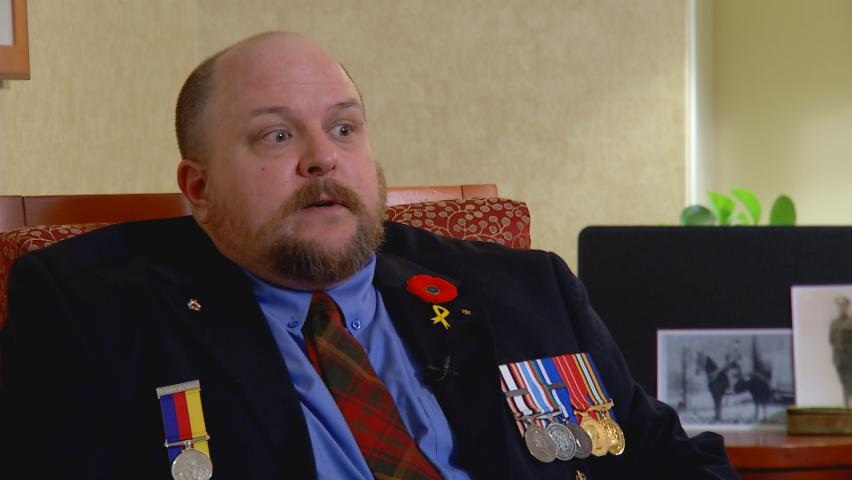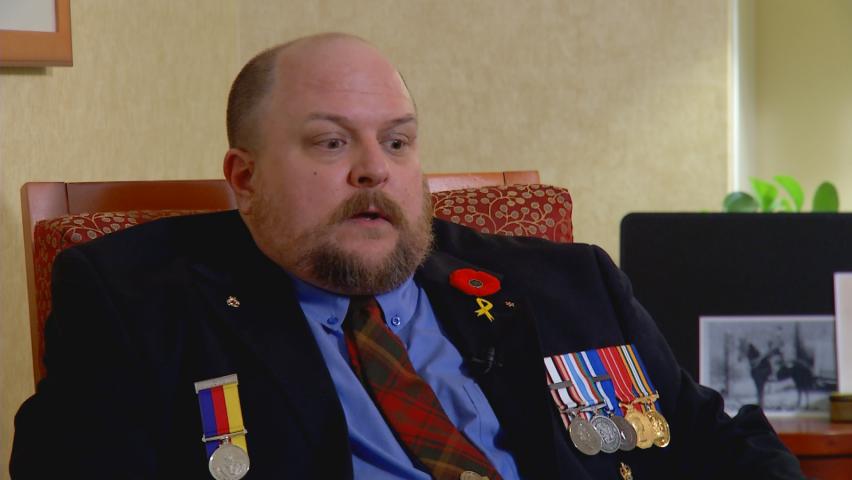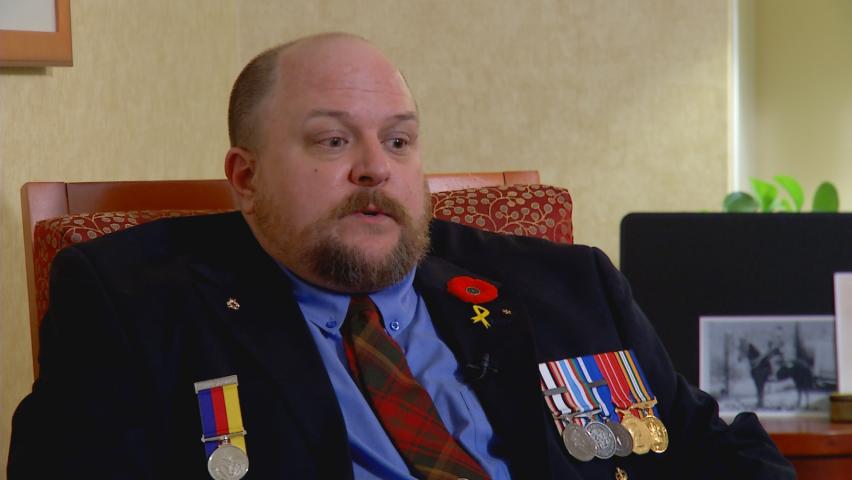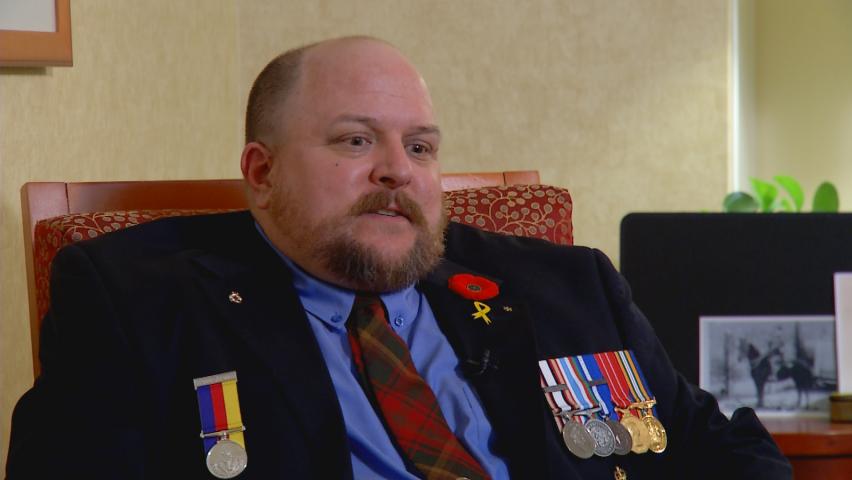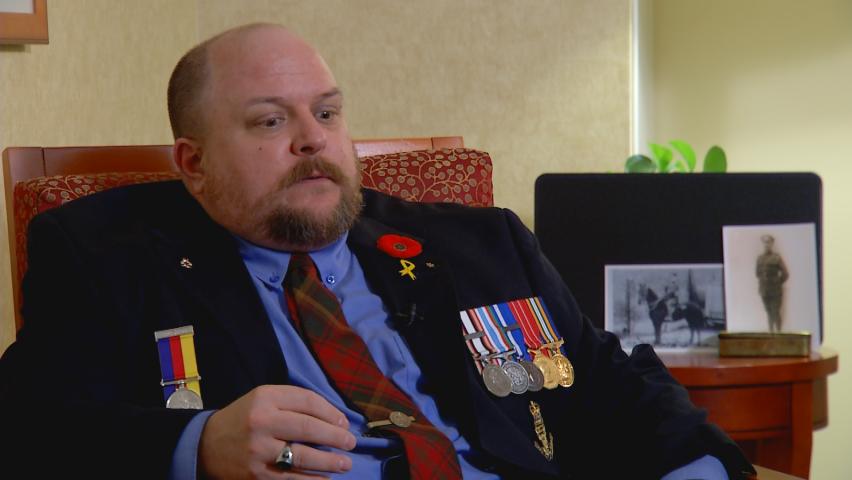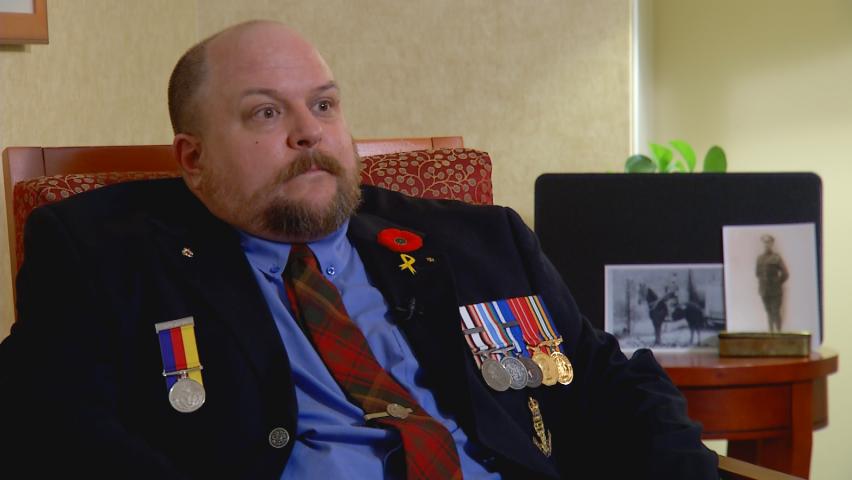Your body is an amazing thing.
The way it handles itself,
the way it protects itself.
The first time I fired my gun in anger
overseas was during Nichola’s ambush
where she was killed.
I thought my gun jammed.
It sounded like the gun went “sproing!”
It made a very mechanical sound but
I did not hear the shot go off.
I thought my gun was jammed.
I did our drill which was to cant the weapon
to the left, you look in the chamber to see
where the bolt is sitting in order to carry
out your next immediate action.
And it’s a drill that is pounded into every
soldier to make sure your weapon is
serviceable and firing.
There’s nothing wrong with my weapon.
My ears had actually shut down the noise
of my rifle firing to protect me. Like I said,
your body is amazing what it can handle
and cope and do. You know,
when you’re exposed to loud noises,
we wear ear protection here.
When you’re in combat, you don’t have the
luxury of stopping to put your ear plugs in
or put your ear defenders on yet we were
able to talk to each other, we were able to
communicate with each other and yes
you’re doing a lot of yelling over top of stuff
but it’s funny what your body focuses on.
It wants to focus on survival so it focuses
very much visually and you start recording
information like everything is intensified,
everything is increased in its’ clearness,
its’ brightness, its’ colour.
Time pauses and you become very
hypervigilant and unfortunately once
your body has been accustomed to
becoming that vigilant or that hyper vigilant,
it doesn’t necessarily know how to turn
that off and that causes some of the
problems that Veterans suffer is that you
don’t need to experience another gun
fight but if you’re sitting at home and
someone shoots off fireworks the next
street over and you’re not expecting it that
sudden noise automatically puts your body
back into that moment of fight or flight and
your body doesn’t stop to say okay
I’m in Canada, it’s okay.
As soon as it hears the noise your
body reacts to the threat. And that’s why
Veterans sometimes have reactions to
helicopters, to fireworks, all of these things.
And, you know, I took a rock in the
windshield of my vehicle and it was just like
a bullet hitting the glass on my G wagon and,
you know, my instinct was to put my foot
down on the gas and drive as fast as
I could out of the ambush area. I’m in Canada
and I’m on the Yellow Head Highway in
Edmonton. It’s not an ambush area but
my body is already trying to get me
through it without conscious thought so it’s
really an amazing thing but it also is
all controlling. You can’t decide not to do it.
You’re doing it automatically.
Your automatic system is so overpowering
of your regular system that it causes
this disruption. And with that comes a lot
of the extra problems. You have nightmares.
A lot of times you relive the experience of
the traumatic event and from what I
understand from my therapist and
my phycologist your brain is trying to
file all that information and it’s so focused
on survival that it wants to put everything
in the file in chronological order and in
the way it should be from back to front
and get it all organized and put away.
When you’re focused on survival in combat
your body doesn’t put away that other
information, it only takes what it needs.
So later on your mind is shuffling through
that paperwork and it’s trying to put
everything back in order and so that’s
why a lot of Veterans relive that experience
again and again because you brain is
trying to make order out of it.
It’s trying to take a chaos and make it sensible.



